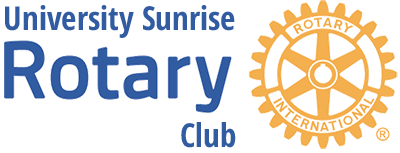Our program on September 10, 2020 featured Emma Le Du and Mike Madden of TINFA (Technology and Information For All). The University Sunrise Rotary Club has a long standing relationship of support for TINFA and its mission to bring technology to rural student learning in Guatemala.

Emma Le Dû is the Exec. Director of TINFA. She has previously held positions at the Grameen Foundation as Senior Technical Program Manager. She has been in Information Technology for over 15 years, at Microsoft and Amazon.com in various positions in International and Program Management. Emma has spent two years in Lao P.D.R, as a computer consultant to the European Union and UNDP. She holds an Engineering degree in Robotics and Electronics (ESIGELEC in Rouen France) and a Master of Public Administration from the Kennedy School (Harvard University) with a focus on Leadership and International Development. Emma is TINFA’s co-founder.

Mike Madden is retired and lives in the Loyal Heights neighborhood of Seattle, just north of Ballard. He attended Western Washington University and completed a Bachelor’s Degree in Education, majoring in History and French. Mike taught at Meadowdale Junior High School for five years before joining Safeco Life Insurance Company, now known as Symetra Life Insurance. Mike retired from Symetra as Vice President and head of the Individual Product Line after a rewarding thirty-three year career there. Mike believes in volunteer service, having served several years as President of the Northwest Regional Board of Dollars for Scholars. He is a board member and Secretary of the University Sunrise Rotary Club. He is a volunteer with the Seattle Bureau of Fearless Ideas tutoring organization and is President of the Board of Bright Future Dollars for Scholars.
Over several years, the University Sunrise Rotary Club and Foundation have contributed $30,000 to TINFA. These gifts have been augmented by $20,000 from University Rotary and other local Rotary Clubs. In addition, the Rotary International Foundation matched these grants to raise the total to $149,000.
The program brings technology and training to teachers in rural schools in Guatemala. Thus far, forty-one teachers have been trained in the program. Each teacher receives 96 hours of training. Some of the teachers have no phone or most have no computers.
The schools are facing, of course, an additional challenge with closures due to COVID-19. To help, TINFA has coordinated with participating teachers to create workbooks to distribute to students at home. The program has been very successful with 94% of the workbooks completed and returned by the students.
In response to a question from the Club, Emma said one of the biggest impacts of the program is to introduce how technology can impact on people’s lives. This is life changing, as new doors are opened in poor rural areas of Guatemala that help students–and their families–realize and use previously unknown resources. The key, she said, is to open this door as it will change lives forever.
TINFA is having its annual fundraiser, Love of Learning, on October 3, 2020 – Saturday, – from 5:30 to 7:30. It will be virtual and Rotarians are hosting several virtual rooms. You are invited to join a virtual room with a smaller number of people and have a chance to chat. Then you will join the main program for information and inspiration. This is a great organization doing an amazing job.
The Keynote Speaker is Sonia Nazario. She is a Pulitzer Prize winning journalist whose stories have tackled some of this country’s most intractable problems. She is best known for “Enrique’s Journey,” her report of a Honduran boy’s struggle to find his mother. It became a national bestseller.
To join one of the University Sunrise Rotary rooms, as a guest, please e-mail Pam Mushen at pdmushen@gmail.com , Lee Raaen at lee@raaen.com , or Mike Madden at mikeminseattle@gmail.com. Your hosts have paid the guest registration fee ($35) and are looking forward to having you join them.
Join the University Sunrise Rotary Club for our weekly programs. We meet via Zoom every Thursday morning at 7:30 a.m. Pacific. The line opens at 7:15 a.m. Registration is not required. Login by clicking here.











